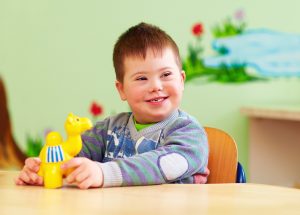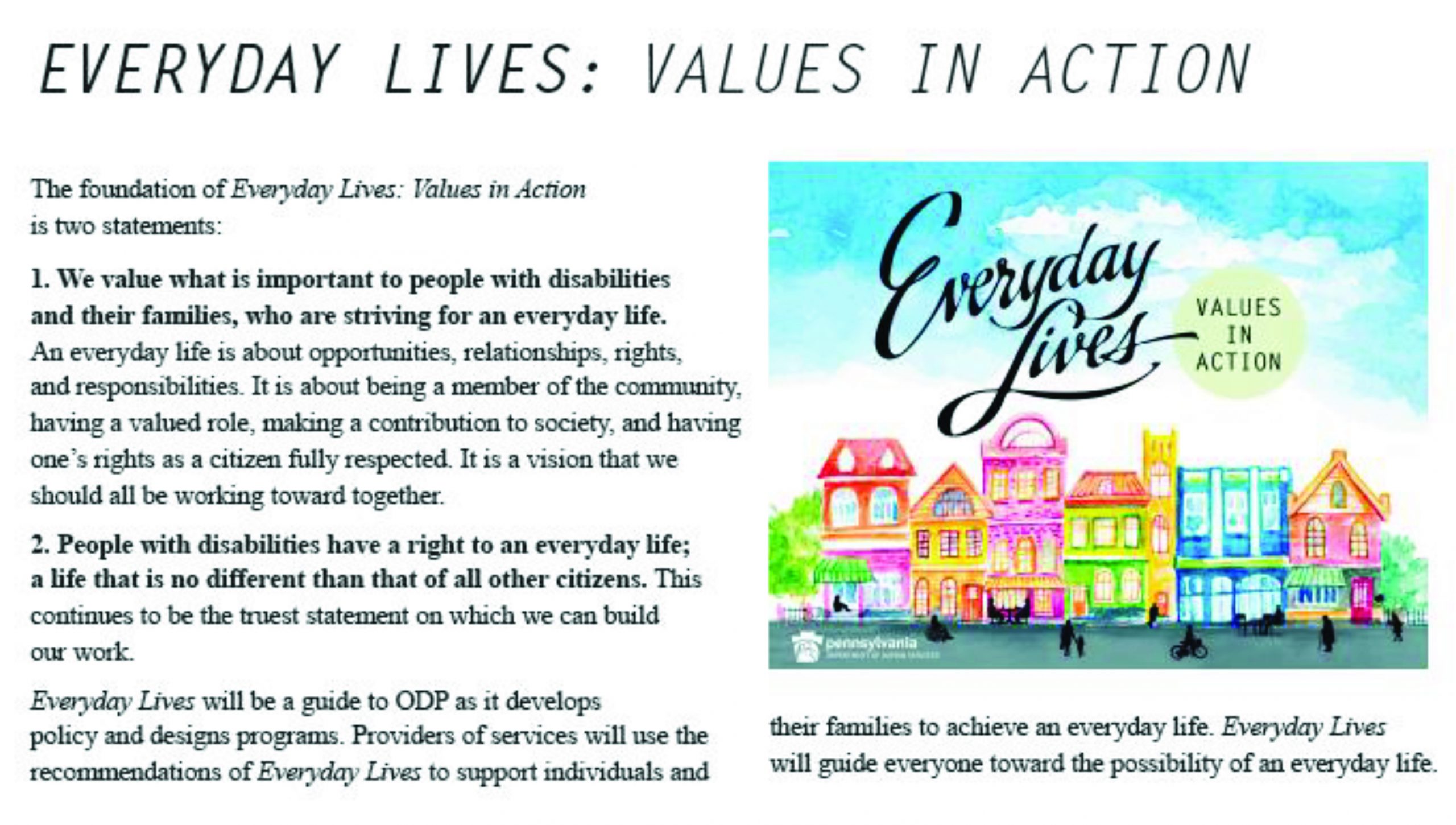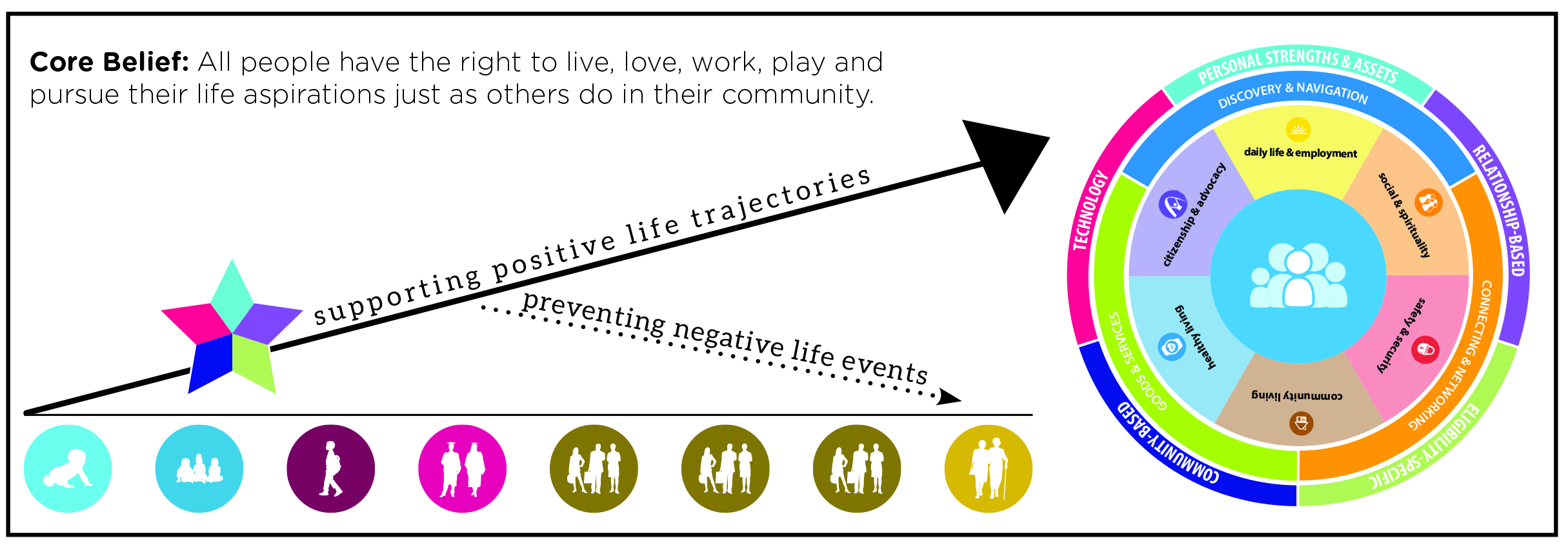 Serving Individuals with Intellectual Disabilities and/or Autism, their Families, and the Providers who support them.
Serving Individuals with Intellectual Disabilities and/or Autism, their Families, and the Providers who support them.
At RIHS, we’re working to make the values and vision of Everyday Lives a reality of you.
About Developmental Services Support
Developmental Services is a division of RIHS (pronounced Rise) that has contractually agreed to provide and coordinate intake and eligibility for Support Coordination Services along with resource coordination for Westmoreland County’s Developmental Services Program as part of the Office of Developmental Programs (ODP) within the Pennsylvania Department of Human Services (DHS).
Intake and eligibility will be provided to individuals birth through adulthood, with a diagnosis of intellectual disability, autism spectrum disorder, or developmental disabilities 0 to 8 years of age and their families who live or receive services from Westmoreland County BH/DS.
Resource coordination focuses on outreach, distribution of community resources, providing training and networking opportunities for individuals, their families and other stakeholders in the developmental services system who live in, receive, or provide servicers in Westmoreland County.
All services are based on the philosophies and concepts of Positive Approaches, Everyday Lives, LifeCourse Framework; Supporting Families throughout the Lifespan.
Supports Coordination
Supports Coordination is a critical service that involves the primary functions of locating, coordinating, and monitoring needed services and supports for participants.Locating services and supports consists of assistance to the participant and his or her family in linking, arranging for, and obtaining services specified in the service plan, including resources in the community, competitive integrated employment, needed medical, social, habilitation, and participant direction opportunities.
Coordinating consists of development and ongoing management of the service plan in cooperation with the participant, his or her family, and members of the service plan team. Monitoring consists of ongoing contact with the participant and his or her family, to ensure services are implemented as per the service plan. Monitoring is intended to ensure that participants and his or her family are getting the support they need, when they need them, in order to see measurable improvements in their lives
Office of Developmental Programs
The Disability Services system is part of the Office of Developmental Programs (ODP) within the Pennsylvania Department of Human Services (DHS).The Office of Developmental Programs (ODP) sets policy and guidelines for the County and Regional Offices to administer and implement Disability Services programs. These policies are published and distributed through Bulletins and Communications issued by the State Office.
The mission of the Office of Developmental Programs (ODP) is to support Pennsylvanians with developmental disabilities to achieve greater independence, choice and opportunity in their lives. The office seeks to continuously improve an effective system of accessible services and supports that are flexible, innovative and person-centered.
Everyday Lives

LifeCourse Framework and Principles

The LifeCourse Framework was created by Missouri FaDimscillayi-mtoer- Family under the leadership of the University of Missouri at KC Institute on Human Development, Missouri’s University Center on Excellence in Developmental Disabilities. As a participating state in the National Community of Practice of Supporting Families throughout the Lifespan, Pennsylvania’s ODP’s embraces the LifeCourse Framework as a set of principles and tools to guide conversations and planning with the people we support.
The LifeCourse resources can be downloaded using the following link: https://www.lifecoursetools.com/lifecourse-library/lifecourse-framework/. Particularly noteworthy for professionals is the resource entitled “Charting the LifeCourse: Experiences and Questions Booklet”. The questions in this guide represent the diverse experiences of the families and self-advocates who developed these materials and concepts. Individuals and families, professionals and community members need tools that will help them along the way in achieving full, meaningful and self-determined everyday lives. This booklet is intended to be a helpful tool for the journey.
For individuals with disabilities or special healthcare needs and their families, Charting the LifeCourse: Experiences and Questions is helpful in: 1) exploring questions and life experiences at all ages and areas of life so they can create and plan a vision for a good life now and in the future; and 2) guiding conversations with family, friends and/or professionals in their support network about life goals and outcomes or what they need to be successful and self-determined now and in the future.
For professionals who serve individuals with disabilities, this guidebook helps to: 1) build upon their own understanding of the needs of the people they support; and 2) start conversations about what people need in order to be successful and self-determined throughout their lives, and to help them think about how their choices, decisions and experiences now can help shape the future.
For the broader community, the LifeCourse guide can be used by anyone who wants to learn more about what people with disabilities and their families experience and think about as they strive to live full and meaningful lives now and in the future. By considering the questions in the guide, community members may find ways to be more inclusive and accepting of all citizens in everyday community life.
